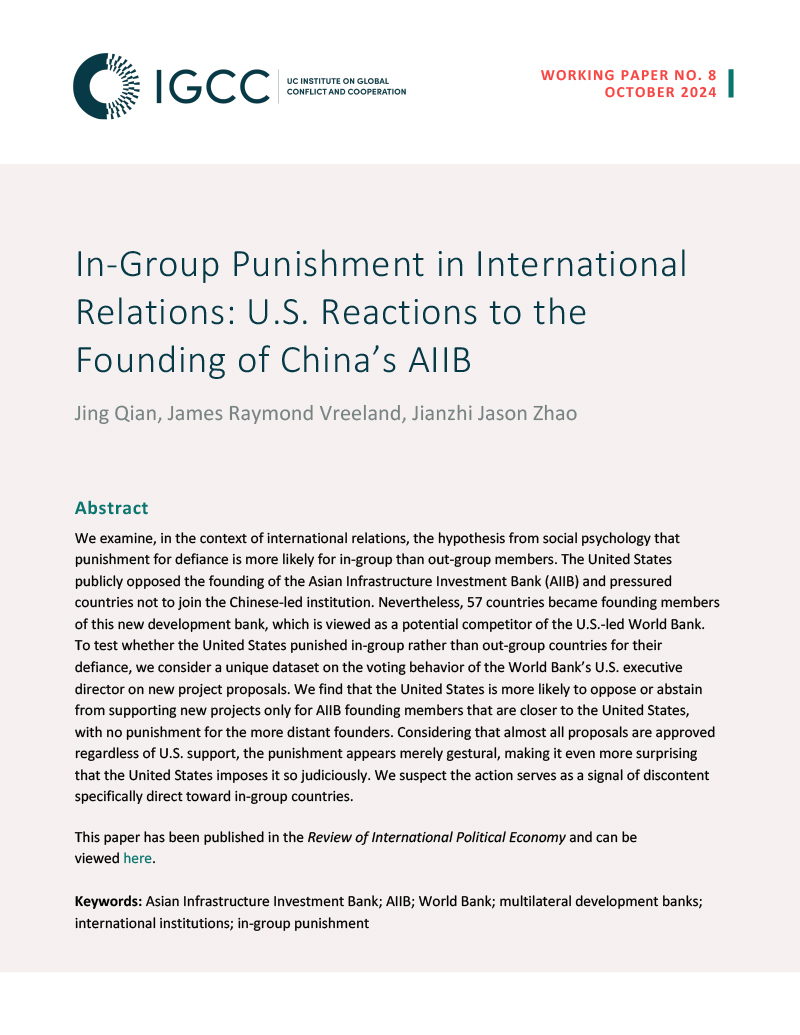In-Group Punishment in International Relations: U.S. Reactions to the Founding of China’s AIIB

In this working paper, co-authors Jing Qian, James R. Vreeland, and Jianzhi J. Zhao examine, in the context of international relations, the hypothesis from social psychology that punishment for defiance is more likely for in-group than out-group members. Upon examining a unique dataset on the voting behavior of the World Bank’s U.S. executive director, they find that the United States is more likely to oppose or abstain from supporting new projects only for AIIB founding members that are closer to the United States, with no punishment for the more distant founders.
DownloadIn this working paper, co-authors Jing Qian (New York University, Shanghai), James Raymond Vreeland (Princeton University), and Jianzhi Jason Zhao (University of Exeter) examine, in the context of international relations, the hypothesis from social psychology that punishment for defiance is more likely for in-group than out-group members. The United States publicly opposed the founding of the Asian Infrastructure Investment Bank (AIIB) and pressured countries not to join the Chinese-led institution. Nevertheless, 57 countries became founding members of this new development bank, which is viewed as a potential competitor of the U.S.-led World Bank. To test whether the United States punished in-group rather than out-group countries for their defiance, the authors consider a unique dataset on the voting behavior of the World Bank’s U.S. executive director on new project proposals. They find that the United States is more likely to oppose or abstain from supporting new projects only for AIIB founding members that are closer to the United States, with no punishment for the more distant founders. Considering that almost all proposals are approved regardless of U.S. support, the punishment appears merely gestural, making it even more surprising that the United States imposes it so judiciously. The authors suspect the action serves as a signal of discontent specifically direct toward in-group countries.
This paper has been published in the Review of International Political Economy and can be viewed here.
Thumbnail credit: AIIB headquarters, Wikimedia Commons